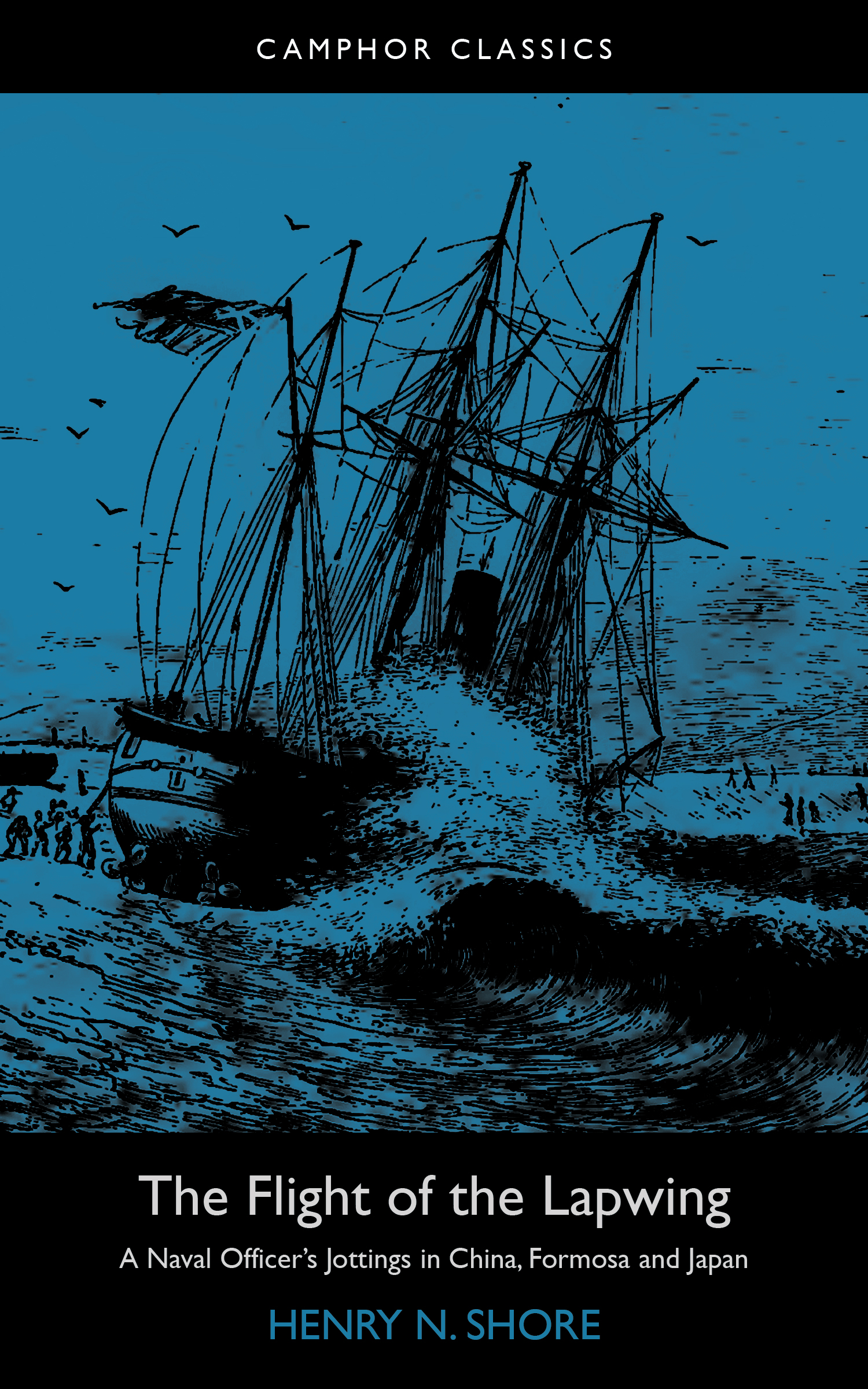Description
The Flight of the Lapwing is a fascinating record of a turbulent period in East Asian history, written by a Royal Navy officer serving at the “China Station”.
In contrast to some Far East writers of the time, Shore generally takes an even-handed approach toward China. Although he carries a sense of racial superiority common at the time, this is tempered by appreciation for what he sees as the merits of the country and its people. A sympathy with the Chinese working classes pervades the text, and Shore is keen to point out the courage and forbearance of coolies under onerous working conditions, while he is often not quite so complimentary about the officials of the country.
The poor Chinese colonists in Formosa are terribly oppressed and ‘squeezed’ by the officials, though I am told they are better off than their countrymen on the mainland. The very fact that they bear it all so patiently and work so industriously speaks volumes for them, and surely goes to prove that, if they could only shake off the present incubus of Mandarin rule, they would be capable of better things.
Shore also seems immune to exaggeration and flights of fantasy, and was careful to confirm his impressions of the country by consulting numerous books about China and talking to some of the foremost Western experts on the subject. A sense of duty to convey a clear and genuine impression to the reader “back home” is at the root of this intellectual honesty, and both his descriptions of the physical scenery and the life and customs of the Chinese people tally closely with a modern understanding of these subjects.
Displaying a dry sense of humour and a good deal of respect for the country, Shore’s book is an important outsider’s look at China in a time of transition. On some topics he differs from widely held negative views of his time, reserving special praise for selected Chinese foods and for the industry and pacific nature of the Chinese people.
I had a good opportunity of inspecting the cuisine; and we might with advantage take a hint from them in this line of business. There was a meal set out such as an English soldier rarely sees, both in variety and treatment. Each mess had at least five dishes, besides the staff of life — rice — which, it is almost needless to say, was done to perfection.
Few writers from that era have reported on China with such clarity, fairness, and attention to detail as Shore. The Flight of the Lapwing is an important record of this turbulent and fluid time in China’s history. Though Shore wrote nearly a century and a half ago, his language and sentiment is readily accessible and does an admirable job of transporting the modern reader back to a different age.


